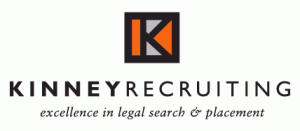In a 5-4 decision in Espinoza v. Montana, the U.S. Supreme Court held that Montana could not exclude religious schools from a government subsidy program for private education. The Court’s reasoning in Espinoza is that denying government aid to religious schools because of their “religious character” violates the First Amendment’s Free Exercise Clause. The effect of the Espinoza decision, however, is that the other half of the First Amendment’s guarantee of religious liberty, the Establishment Clause, has been stripped of its stated objective and protection.
In plain language, the Establishment Clause prohibits the government from enacting any law “respecting an establishment of religion.” As to what “respecting an establishment” means, in Everson v. Board of Ed. of Ewing, 330 U. S. 1, 13 (1947), the Supreme Court “recognized that the provisions of the First Amendment […] had the same objective and were intended to provide the same protection against governmental intrusion on religious liberty as the Virginia statute” for religious freedom.
In his infamous work explaining and defending religious liberty in Virginia, James Madison stated that to grant churches access to government funds was a contradiction to religion itself as “every page of it disavows a dependence on the powers of this world.” Civil support for religion also represented a “contradiction in terms” because it weakened “those who profess this Religion a pious confidence in its innate excellence and the patronage of its Author.” Later on as president, Madison was explicitly clear that “the appropriation of funds of the United States for the use and support of religious societies” stood contrary “to the article of the Constitution which declares that ‘Congress shall make no law respecting a religious establishment.’ ”
The idea that the First Amendment’s religious liberty provisions, which the Court has said are derived directly from the Virginia Statute, would be violated by denying churches access to government funds contradicts a stated tenet of the liberty itself. But that contradiction is precisely what the Roberts Court upheld in Espinoza.
In Espinoza, Chief Justice John Roberts dismissed Establishment Clause concerns by pointing to over three decades of precedent where the Court has upheld the distribution of government funds to religious organizations when “the link between government and religion is attenuated by private choices.” To use an analogy from the Court’s precedent, “a State may issue a paycheck to one of its employees, who may then donate all or part of that paycheck to a religious institution, all without constitutional barrier.” The fundamental structure of the Montana program, however, makes this analogy appear inapt to the one at issue in Espinoza. To understand why, we have to get into some background of the Montana tax program.
As detailed by the Montana Supreme Court, the program offers the “taxpayer a dollar-for-dollar tax credit” utilizing money from the common tax pool, to be used for tuition scholarships to private schools. In other words, the program at issue in Espinoza involves government compelling all residents through taxation to financially support a certain type of service: private education. Which after the Espinoza decision, must now include religious education for anyone who wants it. But the type of service government can compel you to fund through taxation matters (or at least is should), precisely because we have an Establishment Clause.
Think about it, when the government pays someone to be an accountant, or a groundskeeper, or a legislator, my taxes are being compelled to pay for these secular services, it is true. But it is also self-evident that paying for these secular services is where the government compulsion ends. In the program at issue in Espinoza, however, the service government is compelling must now include religious education. By mandating that the government must now provide religious education, any attenuation between government and religion evaporates. Moreover, the fact that government is allowing private actors to direct the funding does not make the government compulsion for funding the service any less significant when it occurs. At least according to a Madisonian, Virginia Statute standard and also recent Roberts Court precedent.
The framework Madison was opposing when he fought to pass the Virginia Statute would have permitted tax assessments for churches, but afforded citizens complete individual autonomy to select which church could receive the funds. All undesignated funds were directed to the state general fund for the development of “seminaries of learning,” which were not required by the text to be religious in nature in order to receive funding. However, despite the fact that this framework was nonpreferential to any specific religion or even arguably to religion itself, and despite that it gave individual citizens complete autonomy to direct the funds, Madison still opposed and ultimately helped defeat it. The reason for Madison’s opposition and insistence on the Virginia Statute standard was simple: Government providing financial aid to religion, even neutrally applied aid, nevertheless undermines religion’s exclusive authority over spiritual matters. Put simply, the Montana program the Court upheld in Espinoza quite literally mirrors the taxation framework the Virginia Statute of Religious Freedom was enacted precisely to prevent.
Even if you want to dismiss this historical reasoning, however, the fact is that just two years ago a majority of the Court in Janus v. AFSCME rejected a remarkably similar “attenuated private choice” justification used in Espinoza. Even more frustrating, the reasoning by the Court in Janus was based on a Madisonian, Virginia Statute framework! In Janus, the Court held that “[f]orcing free and independent individuals to endorse ideas they find objectionable raises serious First Amendment concerns. That includes compelling a person to subsidize the speech of other private speakers.” Do you see the problem here? The notion that the First Amendment guarantees against the state forcing you to subsidize the speech of private speakers, but nevertheless allows you to be forced to subsidize the religion of private citizens, is grossly illogical. But that is the First Amendment standard we are left with after Espinoza.
The differing outcomes in Janus and Espinoza reflect a broader trend over the past several decades where religion has been continually granted enormous and distinguishable favor in the law by our courts. A favoritism that comes at the great expense of everyone else’s free conscience liberty, particularly nonbelievers. To use just the latest examples, last year a federal court upheld a state’s disenfranchisement of nonbelievers from addressing their own legislatures with messages of unity and pluralism. In another federal court in Texas, nonbelievers — nearly one-fifth of the state’s entire population — were banned from performing private wedding ceremonies, for no other reason than their religious character (or lack thereof). More recently, the federal government has granted “special privileges to religious organizations beyond what is available to similarly situated nonreligious groups” under the Paycheck Protection Program. These privileges have allowed churches to receive hundreds of millions, possibly billions, of dollars in free government subsidies while similarly situated nonreligious organizations are routinely denied any government help.
Possibly making matters even more uneven, the Supreme Court is widely expected this term to decide a case that could expand (or at the very likely minimum, keep in place) the Court’s recently created ministerial exception, meaning it is all but assured that employees at church-run schools, and only religious schools, will continue to be exempted from certain labor discrimination laws. Taken in combination, the ministerial exception and the Espinoza decision can create an even more facially absurd and legally incoherent legal standard where states can be both commanded to stay out of the employment decisions of religious schools, while at the same time existing under an obligation to fund religious schools.
The broader harm that comes from this favoritism of religion and from results such as Espinoza that force citizens to subsidize private religion is that churches become more associated with, and in fact more operationally dependent on, government. This not only furthers the increasing public trend of viewing church operations not as spiritual works, but as extensions of politics, it also causes shifts in the political order to represent direct threats to church operations as many religious schools will now be dependent (to some degree) on the Montana legislature, instead of solely on their “flock.” The “liberty” of the Establishment Clause is that it kept religion away from political influences. It is both depressing and scary to see the Court continually strip away the objectives and protections this liberty affords us all.
 Tyler Broker’s work has been published in the Gonzaga Law Review, the Albany Law Review, and is forthcoming in the University of Memphis Law Review. Feel free to email him or follow him on Twitter to discuss his column.
Tyler Broker’s work has been published in the Gonzaga Law Review, the Albany Law Review, and is forthcoming in the University of Memphis Law Review. Feel free to email him or follow him on Twitter to discuss his column.
 Jordan Rothman is a partner of The Rothman Law Firm, a full-service New York and New Jersey law firm. He is also the founder of Student Debt Diaries, a website discussing how he paid off his student loans. You can reach Jordan through email at jordan@rothmanlawyer.com.
Jordan Rothman is a partner of The Rothman Law Firm, a full-service New York and New Jersey law firm. He is also the founder of Student Debt Diaries, a website discussing how he paid off his student loans. You can reach Jordan through email at jordan@rothmanlawyer.com.










 Tyler Broker’s work has been published in the Gonzaga Law Review, the Albany Law Review, and is forthcoming in the University of Memphis Law Review. Feel free to
Tyler Broker’s work has been published in the Gonzaga Law Review, the Albany Law Review, and is forthcoming in the University of Memphis Law Review. Feel free to 

 Kathryn Rubino is a Senior Editor at Above the Law, and host of
Kathryn Rubino is a Senior Editor at Above the Law, and host of 


